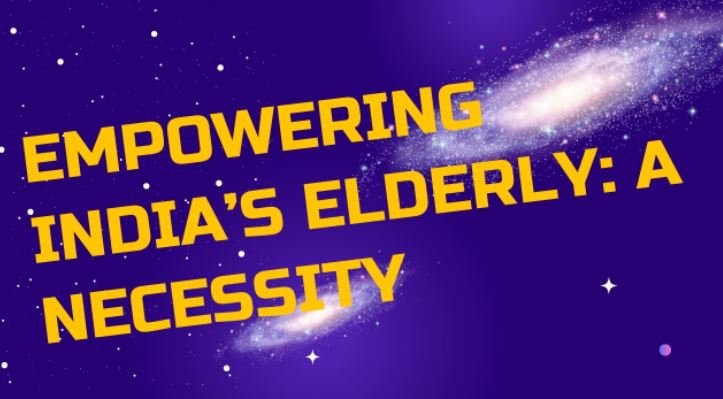India is on the brink of a major demographic transformation as its elderly population, those aged 60 and above, is set to double by 2050, reaching around 347 million. This growth, highlighted in the India Ageing Report 2023 by the United Nations Population Fund (UNFPA), marks a significant shift where, for the first time in the country’s history, the elderly will outnumber children by mid-century. While this increase in life expectancy reflects advances in healthcare and improved living standards, India remains largely unprepared to meet the unique needs of its aging population. This shift brings not only healthcare and economic challenges but also calls for urgent policy interventions to support older citizens with dignity, financial security, and social inclusion.
Older women face particularly significant challenges as they are more likely to outlive their spouses and often end up living alone, which heightens their risk of financial insecurity and social isolation. The report reveals troubling statistics: nearly one-fifth of India’s elderly population lacks any regular income, with this figure reaching as high as 42 percent in certain regions. This data highlights not only income disparity but also the pressing need for a stronger social security infrastructure to prevent millions of older Indians from falling into poverty and experiencing an undignified old age. Women, especially those without family support, are among the most vulnerable in this growing elderly demographic and require focused policies to address their specific economic needs. In healthcare, the elderly remain underserved, even with initiatives like Ayushman Bharat, which aims to provide affordable healthcare access. Seniors often require specialized, ongoing care for chronic and age-related conditions, which the existing healthcare system struggles to provide adequately. There is also a glaring lack of geriatric-specific facilities and trained professionals to address the medical needs of the elderly population, particularly in rural and semi-urban areas. While family care has been the traditional norm, shifting family dynamics and increasing urban migration mean that families often struggle to support their elderly relatives. Given the scope of these challenges, a comprehensive policy response is essential to provide adequate support to India’s aging population. Establishing a national pension system with government subsidies could offer critical financial security for seniors, particularly those with limited family support. Such a pension system would be particularly beneficial for women and other vulnerable groups, helping to ensure a steady income that would allow them to live with dignity. Additionally, expanding access to senior-friendly housing through public housing schemes or private sector incentives could provide viable, age-appropriate living arrangements for those without family care options. By prioritizing the construction of safe, comfortable housing for seniors, the government can help mitigate the risks associated with aging in isolation or unsafe conditions. Healthcare policy reform must also focus on geriatric needs, expanding both access and quality of care for older adults. A targeted approach to healthcare that includes preventative care, mental health services, and chronic disease management would better serve this aging population. Integrating these services within the healthcare system, as well as creating age-friendly spaces within medical facilities, can make healthcare more accessible and effective for seniors. Additionally, training more healthcare professionals in geriatric care and establishing specialized treatment options for the elderly would further bridge existing gaps in healthcare services. Furthermore, intergenerational programs could bridge the social and emotional gap between the elderly and younger generations, helping reduce the sense of isolation that many seniors experience.
Without decisive action, the country risks leaving millions of older citizens isolated, impoverished, and facing significant health challenges in their later years. A comprehensive approach that combines robust social security with accessible healthcare, housing, and intergenerational engagement can transform aging from a period of vulnerability to one of dignity, security, and respect.
#IndiaAgingPopulation #ElderlyCareIndia #AgingWithDignity #SeniorCitizensIndia #ElderlyHealthcareIndia #AgeingPolicyReform #GeriatricCareIndia #WomenAndAging #SocialSecurityForSeniors #IndiaElderlyChallenges #PensionSystemForSeniors #AgeFriendlyHealthcare #SeniorHousingIndia #IntergenerationalPrograms #ElderlyInclusionIndia




